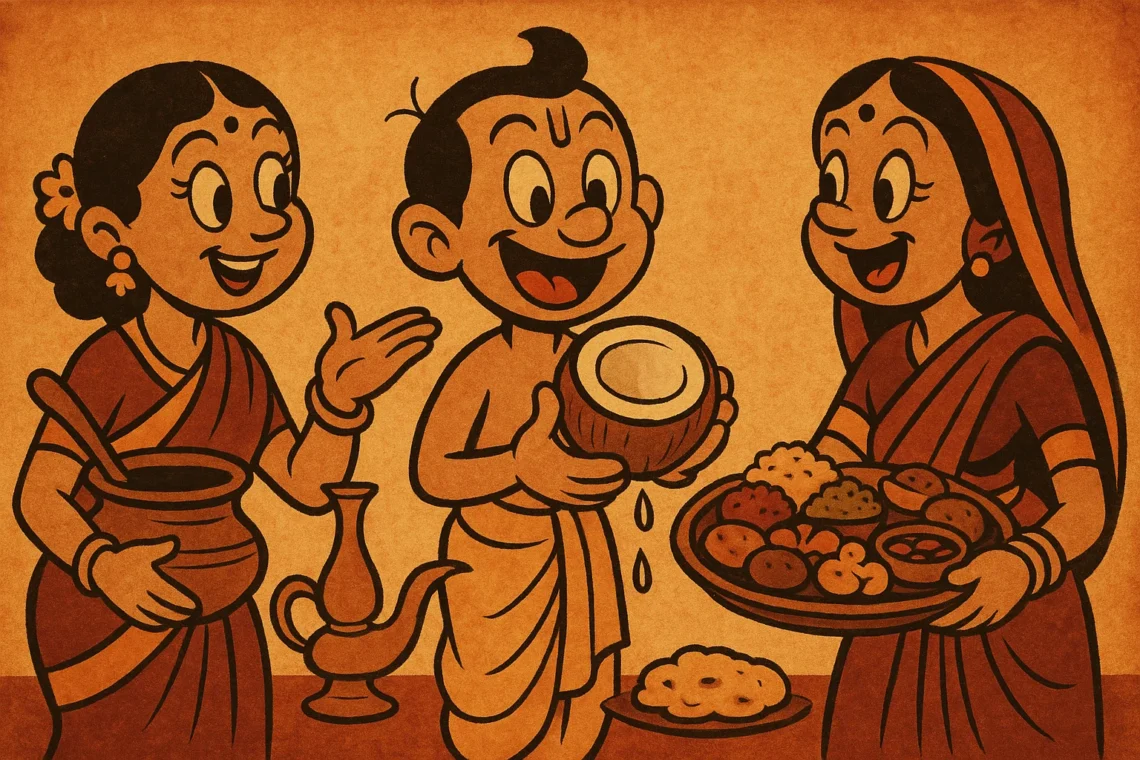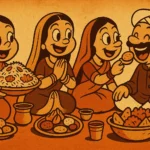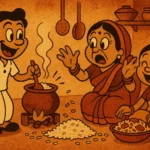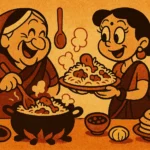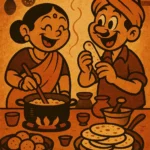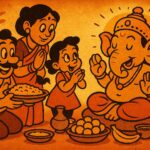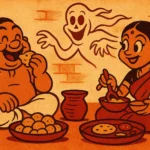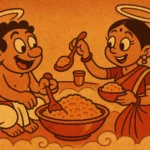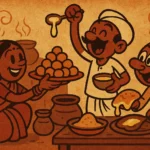Walk into any South Indian home and ask where the coconut oil is, and you’ll be met with a counter-question: “For hair or for cooking?” Because in many kitchens across India — especially along the coasts — coconut oil isn’t just an ingredient. It’s a presence. A signature. A ritual that binds together food, family, healing, and identity. The same glass bottle might season the evening’s curry and be dabbed into a scalp before sunrise. And in that duality lies the quiet genius of how India uses food not just to eat, but to live.
More Than a Cooking Medium
In Kerala, where coconut trees line the roads like old guardians, coconut oil is often the default fat — the base for the day’s first sizzle in the pan. From crisping the red chillies in avial to adding depth to meen curry, coconut oil announces itself with a fragrance that’s earthy, nutty, and instantly grounding. One spoon in a hot pan and you know what region the dish is from. It doesn’t hide. It sings.
But it’s never just about taste. The oil also marks time and intention. It’s what you reach for when you’re cooking for a temple offering, a family feast, or a post-festival detox meal. It’s sacred enough to be used in lamps and simple enough to be drizzled on upma when you’re too tired to cook anything else.
Hair Oil and Halwa
Ask anyone raised in a traditional home, and they’ll tell you: the smell of coconut oil doesn’t just come from the kitchen. It clings to Sunday mornings when your grandmother warmed it, massaged it into your scalp, and told you not to wash it out too quickly. It’s the oil that signified rest, routine, and the preparation for a new week.
And then, somehow, that same smell reappears in a temple kitchen, as halwa is stirred in large brass urulis — ghee-rich, yes, but often finished with a few drops of coconut oil for shine and scent. It reappears during Onam, on banana leaf thalis, in everything from thoran to olan. Even sweets like coconut barfi sometimes carry a whisper of the oil — a reminder that what nourishes the body often nourishes the senses too.
The Fragrance of Ritual
During festivals, coconut oil takes on ceremonial power. It fuels the diya on the prayer shelf, thickens the payasam when ghee is scarce, and softens banana chips to that perfect crunch. At weddings, it’s rubbed into the bride’s hair with turmeric and love. At funerals, it coats the cooking vessels for the mourning meal. In joy and in grief, it is present — grounding, comforting, unmistakable.
And for migrant families living far from home, that first whiff of coconut oil in a foreign kitchen can be deeply emotional. It’s not just the start of a recipe — it’s the start of a memory. A fragment of home that arrives in scent before it appears on a plate.
What Modern Kitchens Forget
In many modern kitchens, coconut oil has been reduced to trend status — sold in health food stores, rebranded as “superfood,” squeezed into minimalist packaging and advertised with buzzwords. But for millions, it was never exotic. It was daily. It was the thing you used to make chutney and condition your baby’s hair in the same hour.
Even today, the act of heating coconut oil until it just begins to smoke is a cue for something sacred: the start of something that matters. It’s the signature at the bottom of a family recipe. The thing that makes even leftovers feel intentional.
More Than an Ingredient
Coconut oil is a connector. Between generations, between kitchens and prayer rooms, between function and flavor. It’s the scent of early mornings, of festive afternoons, of long baths and longer stews. It stains steel spoons and cotton sarees and the air around your front door. It reminds you that cooking — in the Indian sense — isn’t just chemistry. It’s care. It’s continuity. It’s culture in a bottle.
So yes, coconut oil is used for cooking. But it’s also how we bless, soothe, shine, and remember. And maybe that’s why the bottle in the pantry always sits next to the one in the bathroom — not because we’re frugal, but because we understand that nourishment was never meant to stay in just one room.
Born in Mumbai, now stir-frying feelings in Texas. Writes about food, memory, and the messy magic in between — mostly to stay hungry, sometimes just to stay sane.

